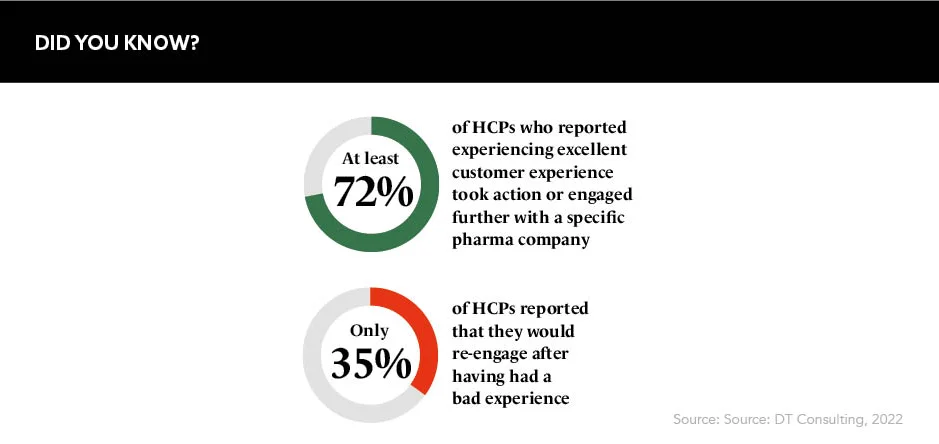Whispers are rising within the pharma industry that the role of the sales rep is in rapid decline. The uptake of new technologies for pharma sales has left some in the field wondering whether their function will soon cease to exist. How can pharma reps move with times and carve out a place to coexist with advancing technology?
Words by Jade Williams
Everything shifts with time. From the changing of the seasons to the tides of the sea, no one thing can remain the same forever – and such is the case for many a role within the pharmaceutical industry.
With these ever-present changes come waves of uncertainty and, in recent times, this feeling has washed over those in the field of pharma sales. The adoption of new technologies such as automation and machine learning, and shifting mindsets around the role’s value, brings about the following question: is the pharma sales rep facing an imminent death? And, if so, what can be done to bring it back from the brink?
An uphill climb
A foundational issue with the traditional rep role lies in how performance is measured. Vanity metrics are rife within many industries, but within the sales field in pharma this is especially the case. Speaking on this topic at the inaugural event for a new pharma community known as ‘Digital Pharma: Unlocked’, Rick Hollis, Business Excellence Lead, Novartis Oncology, states: “If you measure the number of doctors that a rep sees today, they’ll see as many doctors as they can because they’ll deliver on that measure.” But this doesn’t necessarily mean they’re having any meaningful or successful conversations.
Simply tracking the number of doctors seen in a day rather than conversions has led some HCPs to become accustomed to reps knocking down their doors, eager to get in front of them regardless of whether the conversation is truly of value. If the sales rep role is to continue to exist, KPIs must shift with the times to ensure the desired results are achieved, working hand in hand with a dedicated CRM system to tailor approaches to each individual HCP.
“What we incentivise, we will get,” comments James Harper, Founder and Managing Director, Twentyeightb, as part of the event’s ‘Is this the end for the pharma rep?’ panel discussion. Measuring reps on their ability to get in front of doctors is all well and good, but incentivising results, whether these be genuine sales or simply feedback from an HCP, is the next step in advancing the role. In turn, this will ensure there is still value to be gleaned.
Calling for customer centricity
The sales rep is, at its core, a customer-centric role, and there is a moral argument as to whether pharma has an obligation to not waste an HCP’s time when they could be finding solutions for their patients rather than listening to what might be their third sales pitch of the day.
Even if things don’t change tomorrow, we absolutely have to be digging in to try and make sure that we stay on top
Educating HCPs on a new drug launch and indicating its value are both key to a rep’s success, but they must also demonstrate their value in their ability to alleviate an HCP’s concerns. Speaking on the panel, Paul Simms, CEO, Impatient Health, comments that reps “are a long way away from where they could and should be” and that “the rep will soon be much more about listening than talking”. There was a consensus among the panelists that reps should strive to act as a system partner to offer more services to HCPs than just their product – such as new case studies to further demonstrate the efficacy of their medications – and be on hand to answer specific questions about treatments.
In addition, retaining a continuous dialogue with an HCP and ensuring they have a dedicated point of contact throughout their customer lifecycle can deliver immense value and enable reps to transform their offering into what Hollis describes as a “digital orchestrator”. This is a technologically-enabled rep who is able to position what works best for the customer and assist them on every rung of the ladder of adoption while being mindful to work hand in hand with corresponding medical science liaison teams.
Pharma rep 3.0
While the sales rep role is changing, the situation is not entirely a cause for concern. This disruption within the industry has rung some vital alarm bells for the role to evolve – and with change comes opportunity. “Complacency is an enemy that we have to be really careful of,” states Simms. “Even if things don’t change tomorrow, we absolutely have to be digging in to try and make sure that we stay on top.” Companies must grasp this opportunity by the horns to ensure the rep role can grow and stay relevant.
The rep will soon be much more about listening than talking
Also speaking on the panel, Olivia Nixon, Independent Consultant and pharmaceutical field sales expert, believes that this opportunity starts at the very heart of pharma companies. “Company culture is everything in this. If we don’t get that right as organisations, we’re going to lose some excellent individuals – gold standard representatives that we need to take on this journey,” she explains.
Change may not be easy nor immediate, but, nevertheless, companies should strive toward innovation. The number of reps within the industry may decline, but those that remain will become far more empowered in their ability to deliver value to HCPs thanks to new technologies enabling greater personalisation. Good can come from change, and reps must utilise the technology at hand to help them transition into the pharma rep 3.0. Security for the future of the rep lies in the value they can create for their customers, which reps, and the companies responsible for them, must keep in the forefront of their minds.










